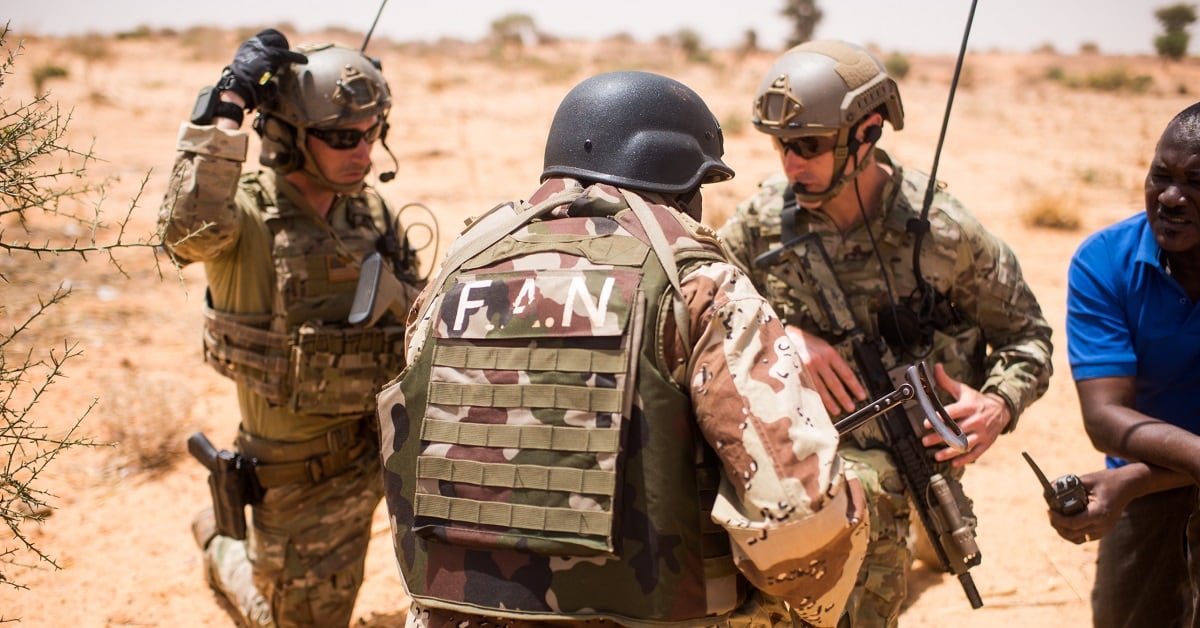A group of sailors have spent the past month traveling along the western coast of Africa, according to Navy officials, as part of a partnership exercise that has seen five stops and dozens of meetings, events and training opportunities as part of Africa Partnership Station, a U.S. Naval Forces Africa engagement program.
The expeditionary fast transport ship Carson City, a military sealift command vessel crewed by civilians and carrying a detachment of active duty sailors, left its Rota, Spain, homeport on July 2, for a trip down to Ghana, Senegal, Cote D’Ivoire, Nigeria and now Cape Verde.
“We recognize that Africa is one of the most expansive continents, as well as one of the fastest growing economies, worldwide,” Capt. Frank Okata, commander of Military Sealift Command Europe and Africa told reporters in a phone interview from Naples, Italy, on Tuesday.
And they have asked for U.S. support in learning to better secure and monitor their coasts, he added.
Along the way, the sailors engaged with locals on everything from combat casualty care to PTSD treatment, local media interviews and an eight-person band performing in marches or parades, Cmdr. Ty Bruce, the officer-in-charge of Carson City’s military detachment, told reporters via phone from Cape Verde.
“Several of the host nations are interested in, or are trying to beef up their diving programs,” he added, so members of his crew introduced a hyperbaric chamber to show them how to train.
Other times, the cooperation took them to repair small vessels for local forces, as most of the countries visited have more of a brown-water navy that sticks to close coastal operations. But they want to go farther than 20 to 50 miles offshore, Okata said.
“The largest is expanding seaward," he said of their goals. “Most of the navies we interacted with, their ability to do power projection or to sail far out into the sea like U.S. forces is very limited.”
For a region booming with economic development, much of it from Chinese investment, while confronting a piracy problem off the coast, the countries are eager for support from not only the U.S., but from partners like France, Spain, Portugal and the United Kingdom, who also make trips down to the Gulf of Guinea, Okata added.
RELATED

“Yes, we are keenly aware that the People’s Republic of China is also trying to make inroads, especially in West Africa,” Okata said. “Investments in infrastructure could be used for a very different purpose than what we’re trying to do.”
Partner forces in Senegal and Cote D’Ivoire also had an interest in learning about PTSD treatment, Bruce said, which was in additional to the shipboard, emergency, family and obstetrics/gynecological medicine his 14-person team came to to talk about.
Senior leaders did or will do their own engagements, Okata added, with an eye toward coaching generals and admirals on how a military fits into a democratic system.
“As a lot of these countries are new democracies, we’re helping strengthen civil-military relations, demonstrating how – as the most powerful country and the most powerful navy in the world – we are accountable to civilian authority,” he said.
Meghann Myers is the Pentagon bureau chief at Military Times. She covers operations, policy, personnel, leadership and other issues affecting service members.









